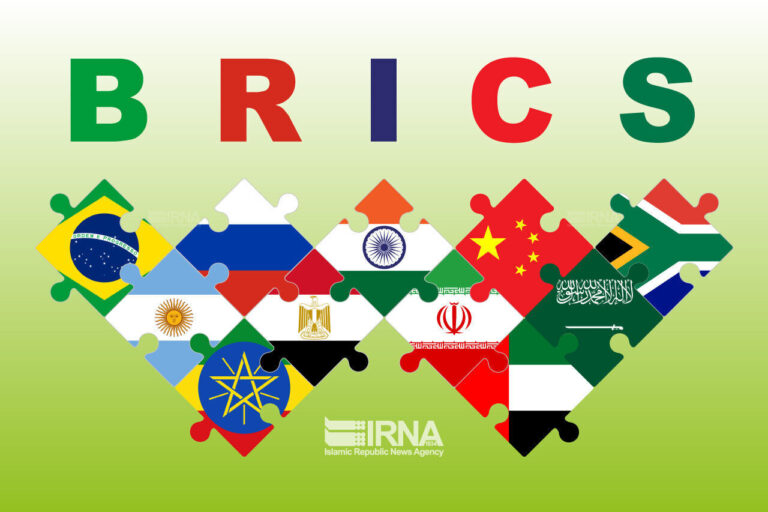BRICS 2024: A New World Order-New Era of International Cooperation and Influence
Under the new structure of a multipolar world, BRICS 2024 promises to be a transformational event. Six new members are on their way to becoming part of the summiteers: Argentina, Egypt, Ethiopia, Iran, Saudi Arabia, and the UAE will add to the summiteers on BRICS, making this year’s summit a people’s summit. The broader geopolitical and environmental issues that the world is facing now will feature on this year’s agenda and bring BRICS as a lead player in reshaping global governance.
What is BRICS?
BRICS denotes a bloc of five large economies: Brazil, Russia, India, China, and South Africa. Created in 2009 under the name BRIC, after South Africa joined in 2010, this bloc hopes to bring together and develop:
• Economic cooperation among developing nations
• Non-dependence on Western-controlled organizations, in other words IMF, World Bank
• Political consultations for a multi-polar world order
BRICS+ will account for nearly 50% of world’s population when new members are added in 2024 and plays a significant role in world trade, energy resource output, and influence on global politics.
Key Themes for the 2024 BRICS Summit
Dynamics that will shape international relations and global coordination are the following:
1. BRICS+ Enlargement
BRICS expansion represents a new world order in Latin America, Africa, the Middle East, and Asia. With the membership of Saudi Arabia and the UAE within BRICS, the group is now geared to dominate the global energy market. Argentina and Egypt represent the new voices from Latin America and Africa respectively, as Iran and Ethiopia deepen strategic cooperation in sectors such as energy and trade.
Such an expanded membership also reflects the growing sentiment of developing nations to be more independent in global governance. The new configuration also reduces economic potential within the group by developing collaboration in trading, energy, and sustainable development.
2. Focus on De-dollarization
One of the most critical issues BRICS must address in 2024 is the US Dollar’s significant dominance in international trade. The group has very seriously attempted to contribute toward minimizing dollar dependence by encouraging trade denominated in local currencies as well as development of alternative systems of payment. While a common BRICS currency has been discussed for some time, the near-term goal seems to be setting up regional financial architectures that should allow intra-BRICS trade to take place.
This New Development Bank, headquartered in Shanghai, is set to take on more salient roles in this respect since it would lend the fruits of its fund-raising efforts to development projects across member states but borrow neither from the advanced financial systems of the West nor capital and financial resources from other parts of the developing world.
3. Energy and Climate Cooperation
Now, with Saudi Arabia, UAE, and Iran entering as energy-rich nations, energy security will be the most pivotal point of BRICS 2024. They are bound to produce ideas for sustainable energy with a balance of the old energy needs and the new directions of combat climate changes.
Thus, it will be interested in so-called green technologies, investment in renewable energy projects, for example, in wind and solar energy. Co-operation in this area is aligned with the long-term aspirations of the bloc to become carbon-neutral and meet the objectives of the Paris Climate Agreement .
4. Technology Cooperation: Digital Innovation and Artificial Intelligence
Technology will play a large role in the 2024 summit, as China leads in AI and India is moving to make itself a global tech power, and in BRICS plans to help build synergy cooperation in other areas, including:
- AI and Big Data
- Development of 5G infrastructures
- Space exploration and its satellite technology
The members will deliberate on how cryptocurrencies and the blockchain can facilitate cross-border trade. It will, thus, further entrench their independence from any payment network controlled by the West.
5. Institution Reform at the Global Level
The BRICS 2024 block will demand the reform of international institutions, particularly the United Nations, World Bank, as well as the IMF. The group wants greater representation of developing economies in the decision-making process, arguing for a more balanced system of governance that reflects the new realities of shifting trends in the world.
Opportunities and Challenges for BRICS+
While the BRICS expansion boosts its influence, it also throws internal challenges. Every member has different national interest-cum-standing, and there is still the rivalry between India and China that may vitiate the building of consensus. Adding to these would be the challenge to match new entrants like Iran or Saudi Arabia with more energy with climate commitments globally to be negotiated.
The varied economic strengths of BRICS+ provide a new opportunity in and of itself. The larger group can be attached to initiatives meant for the following:
- Redrawing the map of trade networks through South-South cooperation
- Alternative financial institutions
- New technological and environmental partnerships
Looking Ahead: What BRICS+ Means for the Global Order
Adding new members in 2024, BRICS has evolved from an economic block to a crucial geopolitical alliance. Influence will flow across borders into:
Global energy market: Saudi Arabia, Iran, and UAE to join
Infrastructure development in thanks to initiatives backed by NDB
Trade networks that make minimal reliance on Western powers
BRICS+ represents a bold step toward a more inclusive and balanced global system as the world continues to shift toward a multipolar order. Where there are challenges, however, the 2024 summit sends an evident message that developing nations are willing to take the lead in the conversation on global governance, trade, and sustainable development.
Conclusion
The 2024 BRICS Summit will come as an epoch marking new international cooperation, indicating the rapid growth of the power of emerging economies. A new expanded bloc brings with it new opportunities for economic growth, energy partnership, and geopolitical influence while also calling for reforms in global governance. As BRICS+ takes its shape, it is likely to have a vital role in structuring the future wherein developing nations will make great strides on the world map.
The world will, however, continue to watch with peculiar interest as this expanded group finds its way through internal differences and global challenges. BRICS+ potentially renews the global order with strategic initiatives and leads a new international cooperation era.


